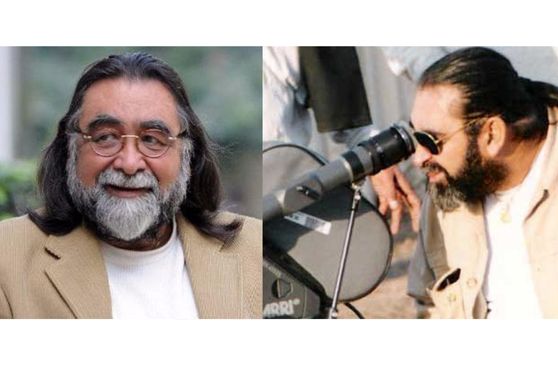Exclusive Interview | Ad guru Prahlad Kakkar on advertising then and now


Advertising is known as the medium to define thinking. Ranging from breaking stereotypes to catching the pulse of the audience, advertising is a powerful tool that when executed well stays with the audience forever.
And when it comes to advertising in India, you cannot not mention the man behind several iconic ad campaigns, Prahlad Kakkar. His work changed the face of advertising in India as we see today. A common name when it comes to advertising, his contributions to the ad film industry has been monumental.
We, at Edugraph, caught up with the Adman of India, Prahlad Kakkar, who was in the city recently for an event. Read on to know the impact of his iconic ads, what it takes to be a creative person and how can the youth get into this challenging yet rewarding world of advertising.
(Prahlad Kakkar is an ad film director, best known for his work on the famous Pepsi TV commercial with Amitabh Bachchan and Sachin Tendulkar. He is one of the few Indian Directors to direct international commercials for clients like Unilever and Pepsico. He is also the founder of Genesis Film Productions, and The Prahlad Kakar School of Branding & Entrepreneurship’ (PKSBE) in Mumbai )
Excerpts from the interview:
How has the ad film industry changed from the way it was back then?
The crafting, editing technique remains the same. It is just that it has now become younger. The subjects have changed, because of the audience. The way they consume media and the way they perceive media is very different from what we used to do. We used to find it entertaining, the current generation finds it irritating.
So you have to break through the clutter to stop the bias against advertising by youngsters today. They dont want to watch ad fims, because they think we are trying to sell them something, So, you have to break through that just like what Google did.
Life lessons from your iconic films, that younger people can learn from?
All my lessons were unique in their own way. Every film teaches you something. It teaches you about fate, Murphy’s Law, and the most important thing is that we learnt about Murphy all our lives. If anything can go wrong, it will go wrong. That’s what we live by. So Murphy arrives unexpected, uninvited, all the time, for every single project. What youngsters should be learning is not to tick boxes, because the job starts after the ticking of boxes. Once everyone finishes is when you know what can go wrong, and that’s when your job really starts. Being in anticipation of Murhy is far more effective than ticking boxes.
Advertisers should usually make content which is relatable for the youth. How do ad filmmakers break through the age-related barrier?
Adfilmmaking can be of any age, it depends on how young you think. Age is just a number. Its how you relate to young people, how you think young, how you innovate all the time.You will only be old because you’re aged, but not old in thinking. The most important thing in advertising today is to think young.
How does one negate the manipulation aspect of advertising?
There is always someone who will try to manipulate the public, therefore they use the best brains in advertising to help them brainwash the people. And at the end of it, people see through it. You have to be very sophisticated to actually con the public. It's not negative - because negativity is very easy to perceive. If it's hidden, very subtly behind entertainment, then it becomes very difficult to perceive.
Any career advice for young people who are trying to get into the industry?
Going for degree courses will not help you much but the only reason why it is important is because it teaches you the rules of what not to do. You learn the rules and do precisely the opposite. But you have to learn the rules to bend them.
How can young professionals prepare themselves to enter the field of adfilmmaking?
You need to self-assess yourself first. More than your academics and qualifications, what's more important is getting to know yourself, get to know how good you are when it comes to accepting change, adapting and innovating. Think whether you can break the rules for the creative process, how good are you in learning how to fail with dignity, and feeling scared of failure. If you are scared of failure, you are scared of risks, and then you should not be joining this field at all. In this case, you could be risking your reputation, your job and risking every single day of your life.